News
-
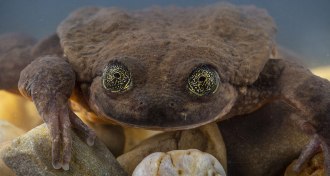 Animals
AnimalsThis rediscovered Bolivian frog species survived deadly chytrid fungus
Scientists recently rediscovered a frog species in Bolivia that hasn’t been seen in 10 years — and it could be used to better understand a frog-killing fungus.
By Jeremy Rehm -
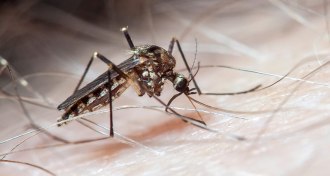 Animals
AnimalsBacterial compounds may be as good as DEET at repelling mosquitoes
A bacterium’s metabolic by-products are as effective as DEET in deterring Aedes aegypti mosquitoes.
-
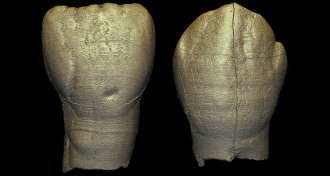 Anthropology
AnthropologyAn ancient child from East Asia grew teeth like a modern human
Choppers from a youngster with an unknown evolutionary background indicate that hominids evolved a humanlike life span in East Asia by 100,000 years ago.
By Bruce Bower -
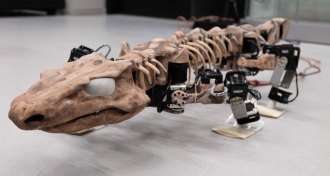 Paleontology
PaleontologyA four-legged robot hints at how ancient tetrapods walked
Using fossils, computer simulations and a life-size walking robot, researchers re-created how an early tetrapod may have made tracks.
-
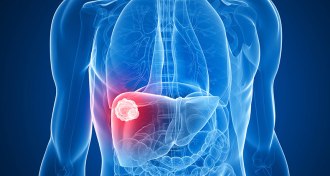 Health & Medicine
Health & MedicineA new 3-D printed ‘sponge’ sops up excess chemo drugs
Researchers have created “sponges” that would absorb excess cancer drugs before they spread through the body and cause negative side effects.
-
 Psychology
PsychologyEasing test anxiety boosts low-income students’ biology grades
Wealthier students outperform their less advantaged peers in math and science. Decreasing test anxiety may help even the playing field.
By Sujata Gupta -
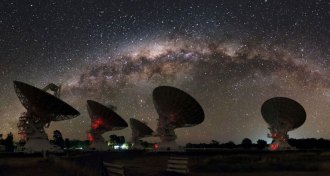 Cosmology
CosmologyA cosmic flare called the ‘Cow’ may reveal a new way that stars die
A burst of light from far away may have been an odd type of exploding star or a white dwarf being eaten by a black hole.
-
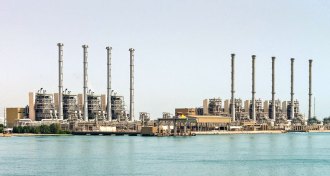 Tech
TechDesalination pours more toxic brine into the ocean than previously thought
Desalination plants help offset the world’s growing water needs, but they also produce much more supersalty water than scientists realized.
By Jeremy Rehm -
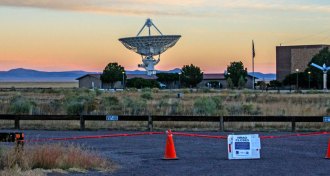 Science & Society
Science & SocietyHere’s how the record-breaking government shutdown is disrupting science
The partial government shutdown is taking many U.S. scientists out of commission and putting up hurdles to their research.
-
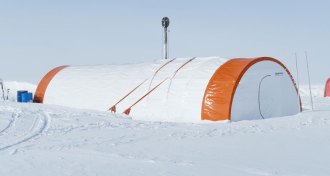 Climate
ClimateA drill built for Mars is being used to bore into Antarctic bedrock
An autonomous drill originally designed for work on Mars has its first mission in Antarctica.
-
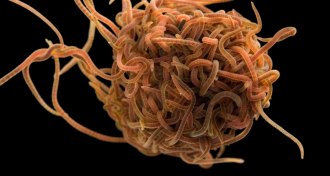 Animals
AnimalsHow worm blobs behave like a liquid and a solid
Blobs of worms flow like a fluid, plop like a solid and fascinate scientists.
By Susan Milius -
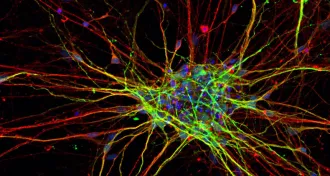 Neuroscience
NeuroscienceNerve cells from people with autism grow unusually big and fast
In some forms of autism, nerve cells develop faster than normal, possibly setting the stage for the disorder, a study finds.